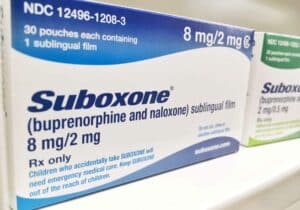Ceasing the use of opiates can trigger opioid withdrawal symptoms, which, while unsettling, are generally not fatal. Symptoms of opiate withdrawal can begin just hours after the last dose and might persist for over a week.
At Iris Wellness Group we recognize the vital role of detox in addiction treatment, including offering outpatient detox services for opiate withdrawals. Our team is dedicated to supporting individuals through this challenging yet crucial phase of recovery. If you or a loved one is battling opiate addiction in Chattanooga, TN, we encourage you to contact us at 423-401-9630. We are here to provide the necessary support and information to aid your path to recovery and help you overcome addiction in a safe and effective manner.
This guide delves into the withdrawal process from opiates like morphine or codeine, offering an overview of what symptoms to expect and their timeline. It also provides strategies for treating and coping with these symptoms, as well as advice on seeking assistance.
What Are Opiates?
Opiates, a class of powerful narcotics originating from the poppy plant, are recognized for their capacity to elicit profound euphoria lasting several hours. This potent effect, however, also contributes to their high potential for addiction, often leading individuals into a cycle of dependence. Typically dispensed by prescription in tablet form, opiates are used for pain management, with the exception of heroin, which is illegal. The challenge of opiate addiction is a significant concern in the United States, affecting both the illicit use of heroin and the misuse of prescription opiates.
How do Opiates Affect the Brain?
Opiates, derived from the opium poppy plant, have been utilized globally for centuries for both medical and recreational uses. Classified as a Schedule II controlled substance, opium is recognized for its medicinal benefits but also carries a high risk of dependence.
Today, while the direct use of opium has diminished, it remains a source for producing medications such as morphine and codeine. Morphine is commonly used as a sedative or to manage severe pain, whereas codeine, with milder pain-relieving and sedative effects, is often prescribed for cough treatment and is found in various over-the-counter remedies.
Morphine and codeine are natural derivatives, categorizing them as opiates. They belong to the broader group of opioids, which encompasses synthetic drugs like fentanyl and oxycodone that mimic their effects. Heroin, another opioid, shares this mechanism, targeting opioid receptors on nerve cells to modulate sensations of pleasure and pain, illustrating the powerful impact these substances have on the brain’s neurological pathways.
What is Opiate Withdrawal?
Opiate withdrawal occurs when an individual ceases using opiates after extended use, prompting the body to adjust to the absence of the drug, which leads to a range of withdrawal symptoms. Opiates, as with other opioids, can lead to physical dependence over time, necessitating increasing doses to achieve the desired effect.
Withdrawal from opiates can happen regardless of whether the person has an addiction or if the prolonged use was for medical reasons. However, dependence can evolve into addiction if the individual continues to use opiates despite facing adverse consequences. This condition may be clinically recognized as a substance use disorder.
Despite the rising misuse of synthetic opioids like fentanyl, data from the 2020 National Survey on Drug Use and Health indicates that 8.9% of individuals misused morphine, and 12.2% misused codeine within that year.
Navigating through opiate withdrawal is a critical step toward recovery, but the process can be challenging. The severity of withdrawal symptoms can vary significantly, influenced by factors such as the duration and intensity of use. Managing withdrawal effectively requires the supervision of healthcare professionals to ensure the safety and well-being of the individual seeking to overcome opiate dependence.
Opiate Withdrawal Symptoms
The experience of opiate withdrawal symptoms can vary significantly based on the duration of opiate use, the dosage, and the abruptness of cessation. These symptoms are the body’s reaction to the absence of the drug, signifying the detox process.
Common symptoms of opiate withdrawal include:
- Muscle aches
- Stomach discomfort
- Feelings of anxiety or restlessness
- Elevated heart rate
- Experiences of fever and chills
- Nausea and vomiting
- Diarrhea
- Shaking or tremors
- Feelings of depression
The intensity of withdrawal symptoms can range from mild to severe and is influenced by factors such as an individual’s overall health status, history of drug use, the stressfulness of their environment, and genetic predispositions to addiction.
This variability underscores the importance of undergoing detox under medical supervision to ensure a safe withdrawal process and minimize potential risks. If you or a loved one is struggling with opiate addiction, we invite you to reach out to us at 423-401-9630 or via our online form to learn more about our opiate addiction treatment program in Chattanooga, TN. Start your journey towards recovery and a life beyond the hold of opiates today.
How Long Does Opiate Withdrawal Last?
Opiate withdrawal unfolds through four distinct phases: anticipatory, early acute, fully-developed acute, and Post-Acute Withdrawal Syndrome (PAWS), each presenting its own set of challenges and symptoms.
Acute withdrawal symptoms typically begin within hours after the last opiate dose and are marked by intense, flu-like symptoms characteristic of painkiller withdrawal. Following this acute phase, individuals enter a prolonged abstinence period, potentially lasting up to six months, a critical time when susceptibility to relapse triggers is heightened.
Opiate Withdrawal Timeline
Navigating the journey through opiate withdrawal is a challenging process that unfolds in several stages, each characterized by its own set of symptoms. Understanding these stages can provide insight into what to expect and the importance of having the right support system in place. From the initial feelings of anxiety and craving to the long-term adjustments of PAWS, each phase requires specific coping strategies and, often, medical intervention to ensure safety and improve the chances of successful recovery. Here’s a closer look at the opiate withdrawal timeline and the symptoms associated with each stage:
3-4 Hours: Anticipatory Stage
- Anxiety
- Fear
- Cravings
8-10 Hours: Early Acute Stage
- Anxiety and restlessness
- Flu-like symptoms including nausea and vomiting
1-3 Days: Fully-Developed Acute Stage (Peak Withdrawal)
- Body tremors and muscle spasms
- Diarrhea and insomnia
- Elevated blood pressure
Up to 24 Months: Post-Acute Withdrawal Syndrome (PAWS)
- Persistent mood swings
- Ongoing anxiety and depression
- Sleep disturbances and poor concentration
- Irritability
This timeline serves as a guide to the opiate withdrawal process, highlighting the importance of support and medical supervision to navigate the stages safely and effectively.
Can You Die From Opiate Withdrawal?
While opiate withdrawal is predominantly non-lethal, it can be extremely distressing and, in rare instances, lead to critical complications. The intense vomiting and diarrhea associated with withdrawal can lead to life-threatening dehydration and elevated blood sodium levels without proper medical intervention. This dehydration can severely impact the body’s balance of electrolytes, potentially causing heart failure in severe cases. It underscores the importance of managing opiate withdrawal under the supervision of healthcare professionals to ensure safety and address any complications promptly.
Opiate Withdrawal Treatment at Iris Wellness Group
Iris Wellness Group is a haven for those fighting opiate addiction in Chattanooga, TN. Our opiate addiction treatment center offer a nurturing environment conducive to recovery.
Our compassionate outpatient program offers opiate outpatient detox in Chattanooga, TN, ensuring a safe and effective detox process. Once free from addictive substances, you can seamlessly transition into one of our specialized outpatient treatment programs at Iris Wellness Group, designed to address substance use disorders:
- Outpatient Detox: Combines the convenience of living at home with the effectiveness of regular treatment sessions, ideal for integrating recovery with your everyday life.
- Outpatient Rehab: This program is really flexible, designed to work around your daily schedule.
- Partial Hospitalization Program (PHP): It’s structured but you don’t have to stay overnight. It’s like getting intensive treatment during the day while you live at home.
- Intensive Outpatient Program (IOP): This one offers deeper, more focused care but still lets you keep up with your everyday responsibilities.
- Dual Diagnosis Treatment Program: This is specially for people who are dealing with both addiction and mental health issues at the same time.
Our opiate treatment programs incorporate a variety of interventions:
- Medication-Assisted Treatment (MAT): This uses medicines to help reduce withdrawal symptoms and the urge to use opioids.
- Psychotherapy: This is all about tackling the mental and emotional factors that play a part in addiction by using CBT or DBT.
- Group Therapy: Here, you’ll get support and learn with others who are going through similar experiences.
- Individual Therapy: You’ll get one-on-one support that’s tailored just for you.
- Family Therapy: This helps fix and strengthen your relationships with family, which is super important.
- Holistic Therapies: These focus on improving your overall health – body, mind, and spirit.
- Aftercare: We’ll keep supporting you even after your treatment is over.
Begin your path to recovery with Iris Wellness Group. Our experienced team is here to guide and support you. For more information or to start opiate addiction treatment, contact our admissions team at 423-401-9630.










